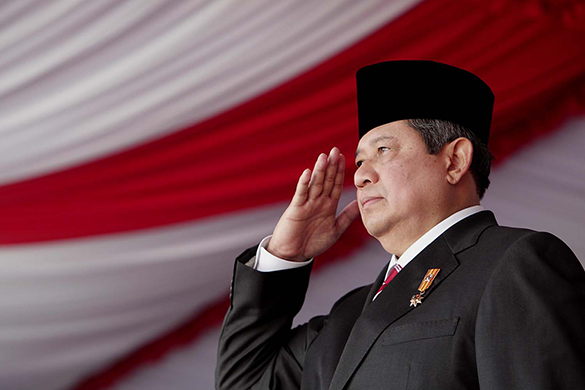Moderate Muslim Leaders Earn Top Rankings on Twitter

The Digital Policy Council’s latest research observes five out of the Top 15 world leaders on Twitter to be from predominantly Muslim nations.
Dubai, UAE Feb 3, 2014 –The Digital Policy Council (DPC), an international, non-partisan “think tank” based in Washington D.C., released its fourth annual ranking of world leaders’ use of the social media website Twitter.com.
The DPC is the research and public advocacy arm of Digital Daya (‘digital influence’), a next generation strategic consultancy that empowers government and corporate leaders to leverage the new media of the Internet to build influence and shape public opinion.
DPC’s latest report indicates continued but decelerated growth in the number of heads of state on this medium. In 2013, 80% or 4 out of 5 world leaders were using Twitter. This figure represents a growth of 8% over 2012.
Moderate Muslim Leaders Embrace Twitter
In 2013, the DPC observed that four out of the top 10 heads of state using Twitter were from pre-dominantly Muslim nations and five out of the top 15.
The most dramatic debut into the top rankings for 2013 was the rocketing ascent of Indonesian leader President Susilo Bambang Yudhoyono (SBY for short) to the #2 spot. SBY joined Twitter in 2013, and quickly gained 4.2 million followers. As the leader of the most populous Islamic country, SBY shares candid and personal opinions in an effort to strengthen democracy at home and throughout the region.
President Abdullah Gül of Turkey stood at #3 increasing his audience by over 1.5 million people last year to approximately 4.1 million followers. Gül maintains both a Turkish and English account on Twitter and sees social media supportive to democracy as this medium enables his populace to voice objections.
Queen Rania, the Queen Consort of the King of Jordan, is rightly one of the most influential women in the Middle East and ranks at #4. Her husband, His Majesty King Abdullah II is also now on Twitter represented as Jordan’s Royal Hashemite Court. The popularity of this Jordanian couple in the virtual world is secure with over 3 million followers across both accounts.
The greatest upward movement among the top 10 was that of His Highness Sheikh Mohammed Bin Rashid Al Maktoum, Prime Minister of the United Arab Emirates and Ruler of Dubai. He jumped from #10 last year to #7 in 2013. Sheikh Mohammed’s followers increased by 1 million to 2.4 million, an indication that his openness to different cultures and public dialog resonates with UAE citizens and residents who, Sheikh Mohammed says, “continually arise to the occasion whenever approached to contribute to innovative ideas.”
Coming it at #12, Prime Minister Najib Abdul Razak of Malaysia has been tweeting since 2008 amassing over 1.8 million followers. The Prime Minister is a strong proponent of social media using it extensively to drive forward his ‘1Malaysia’ campaign to bring the diverse cultures, religions and races of Malaysia together to stand for national unity.
What to Expect in 2014
The data tracked by the DPC for the last four years shows a 58% compound annual growth rate (CAGR) in adoption of Twitter by the world’s leaders.
In 2014, the DPC expects penetration on Twitter for world leaders to rekindle and reach 90 percent, with leaders ultimately realizing how to employ Twitter effectively as a means of strategic communications — an insight seized by Iran’s newly-elected President Hassan Rouhani who became active on Twitter in 2013 for international relations.
For more insights and information, download the full report at http://ow.ly/savSS
About The Digital Policy Council™
The Digital Policy Council (DPC) is an international, non-partisan “think tank” whose objective is the advancement of open discourse on issues of inclusive government. The DPC is the research and policy arm of Digital Daya, a strategic consultancy that provides advisory services to corporate and government leaders regarding digital media.

